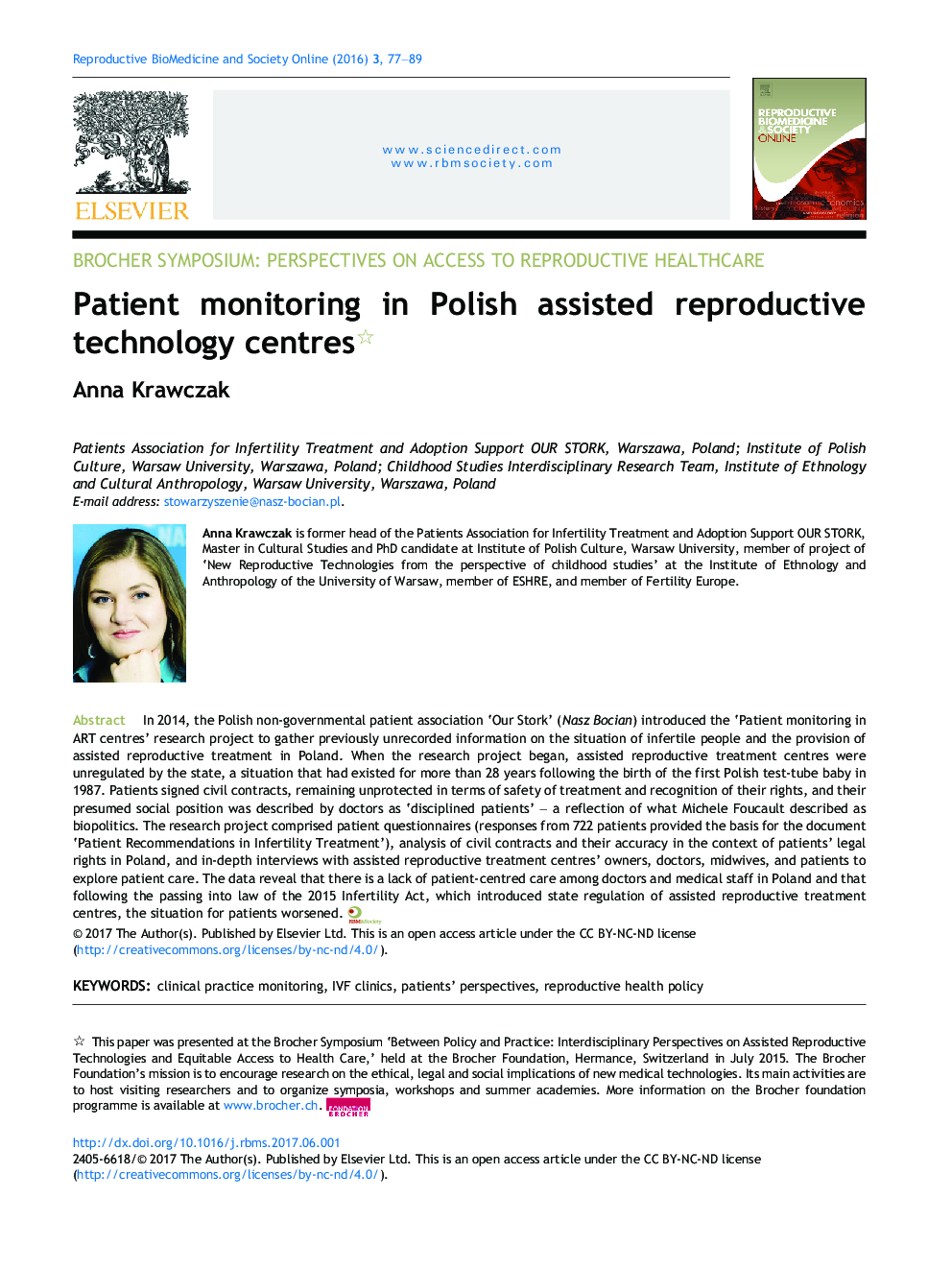| Article ID | Journal | Published Year | Pages | File Type |
|---|---|---|---|---|
| 5123132 | Reproductive Biomedicine & Society Online | 2016 | 13 Pages |
In 2014, the Polish non-governmental patient association 'Our Stork' (Nasz Bocian) introduced the 'Patient monitoring in ART centres' research project to gather previously unrecorded information on the situation of infertile people and the provision of assisted reproductive treatment in Poland. When the research project began, assisted reproductive treatment centres were unregulated by the state, a situation that had existed for more than 28Â years following the birth of the first Polish test-tube baby in 1987. Patients signed civil contracts, remaining unprotected in terms of safety of treatment and recognition of their rights, and their presumed social position was described by doctors as 'disciplined patients' - a reflection of what Michele Foucault described as biopolitics. The research project comprised patient questionnaires (responses from 722 patients provided the basis for the document 'Patient Recommendations in Infertility Treatment'), analysis of civil contracts and their accuracy in the context of patients' legal rights in Poland, and in-depth interviews with assisted reproductive treatment centres' owners, doctors, midwives, and patients to explore patient care. The data reveal that there is a lack of patient-centred care among doctors and medical staff in Poland and that following the passing into law of the 2015 Infertility Act, which introduced state regulation of assisted reproductive treatment centres, the situation for patients worsened.
